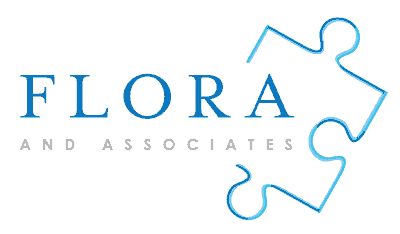Healing After Trauma: How Therapy Can Help You Reclaim Your Life
Introduction: PTSD Awareness Begins with Understanding
Post-Traumatic Stress Disorder (PTSD) affects more people than many realize. While it is often associated with combat veterans or survivors of large-scale disasters, PTSD can impact anyone who has experienced trauma. This includes trauma caused by abuse, accidents, loss, neglect, or ongoing emotional distress.
During PTSD Awareness Month, we take time to recognize the strength it takes to live with trauma and the courage it takes to begin healing. At Flora and Associates in Sparta, New Jersey, we help individuals of all ages begin their healing journey through trauma-informed therapy. Our work is centered on helping clients restore emotional safety, develop healthy coping mechanisms, and regain a strong sense of self.
It does not matter how much time has passed since the trauma occurred. With the right support, therapeutic relationship, and practical tools, healing is always possible. Therapy can help you move forward and reclaim a life that feels grounded, connected, and whole.
What Is PTSD? A Closer Look at Trauma’s Impact
PTSD is a long-term mental health condition that can occur after someone experiences or witnesses a deeply distressing or dangerous event. It is not just a memory of something painful. PTSD can fundamentally change how a person processes safety, trust, and emotion. These changes often affect relationships, work, self-esteem, and overall mental health.
Common symptoms of PTSD include:
- Intrusive thoughts or flashbacks
- Avoidance of specific places, people, or memories
- Emotional numbness or withdrawal
- Difficulty managing stress or calming down
- Feeling overwhelmed by ordinary situations
- Sleep disturbances or loss of focus
- Irritability, anger, or feeling constantly “on edge”
Trauma affects the nervous system in complex ways. People may become emotionally detached or feel stuck in a constant state of alertness. These symptoms are the body’s natural response to danger, but when left untreated, they can disrupt long-term mental and physical well-being. Recognizing these patterns and reaching out for support is often the first step toward healing.
How Therapy Supports Healing and Recovery
Therapy provides a safe and supportive space for healing to begin. At Flora and Associates, our trauma-informed therapists are trained to help individuals rebuild their emotional state, process unresolved feelings, and learn practical tools to manage stress in daily life.
We work with clients to:
- Reconnect with the present moment
- Understand how past trauma is influencing current behavior
- Cope with stress using healthy strategies
- Reduce emotional reactivity and fear
- Strengthen emotional regulation
- Rebuild a sense of self-worth and confidence
- Develop long-term emotional resilience
Therapy is not a one-size-fits-all approach. Each journey is unique. Our therapists listen deeply and offer personalized care designed to meet the client where they are emotionally. Many clients find that having someone who actively listens and provides reliable social support becomes one of the most powerful parts of their recovery.
With time and the right support, people begin to feel more emotionally grounded. They also gain the confidence to handle stressful situations without becoming emotionally overwhelmed.
Therapeutic Approaches That Can Help
We use a variety of therapeutic methods tailored to each individual’s comfort level, goals, and history. Some people prefer talking about their experiences. Others benefit from creative expression or body-based work that helps release tension held inside.
Talk Therapy
Cognitive and narrative therapies help individuals process their trauma through conversation. Clients examine thoughts, beliefs, and patterns of behavior that were shaped by trauma. This process often helps shift their personal story from one based in fear or survival to one rooted in growth and strength.
Art Therapy
For those who struggle to put emotions into words, art therapy offers a safe outlet for expression. Drawing, painting, or sculpting helps externalize feelings, reduce internal tension, and foster self-discovery. It can also provide symbolic ways to revisit and reframe painful memories.
Mindfulness and Somatic Practices
Trauma does not only live in the mind. It is often held in the body. Somatic techniques and mindfulness practices help clients reconnect with their physical selves and learn to calm the body’s response to perceived danger. These practices help regulate emotions and bring a sense of peace and control.
Each of these approaches supports long-term recovery and helps individuals develop strong coping mechanisms to maintain emotional stability.
What Healing Really Looks Like
Healing after trauma is not about erasing the past. It is about learning how to live fully in the present without being defined by previous pain. Therapy helps individuals shift from surviving to thriving.
Clients often report:
- A stronger and more stable emotional state
- Increased confidence in managing emotions
- A growing sense of personal empowerment
- Healthier and more fulfilling interpersonal relationships
- A renewed ability to cope with stress
- More positive emotional experiences and mindset
As healing progresses, individuals begin to feel emotionally lighter and more hopeful. They discover that they are capable of facing challenges without becoming overwhelmed. They also begin to reconnect with joy, trust, and purpose in a meaningful way.
Although healing takes time, it opens the door to a life that feels more authentic and whole.
PTSD in Children and Teens: What Parents Should Know
Children and teenagers can also develop PTSD. Their symptoms may be harder to recognize and may show up as behavior problems, emotional outbursts, trouble at school, or social withdrawal. Many young people have difficulty describing how they feel, especially if the trauma occurred at a young age.
At Flora and Associates, we specialize in helping children and teens process trauma in ways that are developmentally appropriate and emotionally safe.
We support young clients by helping them:
- Understand and express difficult emotions
- Strengthen emotional regulation and coping skills
- Feel emotionally safe in their body and environment
- Build trust in caregivers and supportive adults
Creative therapies like art and play therapy are particularly helpful for young clients. These approaches allow children to explore emotions at their own pace, through activities that feel safe and familiar.
Parents and caregivers play a crucial role in the healing process. When adults respond with patience and empathy, children are more likely to feel safe again. Over time, this helps reduce long-term emotional harm and supports the development of healthy relationships and emotional intelligence.
Conclusion: You Deserve to Feel Safe Again
Healing from trauma is not always a straight line. It can be challenging, emotional, and slow. But it is always possible. And you do not have to do it alone.
PTSD Awareness Month is a reminder that trauma does not define you. It is something you have experienced, not who you are. You deserve to feel safe, confident, and emotionally strong. You deserve a life filled with connection, joy, and peace.
At Flora and Associates, we are here to walk beside you or your child on that path to healing. Whether you are beginning therapy for the first time or continuing a long-term recovery journey, we are honored to support your growth.
Start Your Healing Journey Today
If trauma has been holding you back, this could be the moment to choose something different. You can begin again. You can heal.
Schedule an appointment today and take the first step toward reclaiming your life and reconnecting with yourself.

